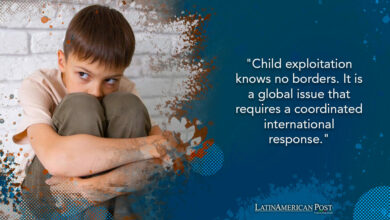These are the vaccines your baby should have
Listen this article
Receiving all recommended vaccines before two years of age could protect your baby from serious childhood illnesses

We all know that taking care of the health of babies is very important for parents, so receiving all the recommended vaccines before two years of age could protect them from serious childhood diseases, such as Tetanus, Diphtheria, Hepatitis B, Poliomyelitis, pneumococcal disease, among others.
Leer en español: ¿Sabes cuáles vacunas debe tener tu bebé sus primeros años de vida?
While several of the diseases that can be prevented with vaccines are no longer as common as they used to be, they still exist and pose a health risk.
What and when should I apply them?
Newborns: according to the newspaper Passport Health Global, from the moment your baby leaves your womb is exposed to all kinds of infections, so it is important that before leaving the hospital he receives the first shots.
• Hepatitis B: your baby should receive three doses of this vaccine and the first is applied when he has just been born.
• BCG vaccine (Bacillus Calmette and Guérin): this vaccine protects newborns from tuberculosis, but as the health department warns, it should not be applied in babies weighing less than two kilograms.
Two months
• According to Baby Center, the pneumococcal vaccine must be applied after two months and protects against pneumococcal disease, which can lead to meningitis, pneumonia, and otitis.
• Rotavirus: it is offered orally and protects against rotavirus, the most common cause of acute gastroenteritis. It also has three doses and the first one should be applied between week 6 and 12.
• Pneumococcus: protects against 13 strains of pneumococcal bacteria, prevents pneumonia and pneumococcal meningitis
• Pentavalent: protects babies from five diseases: whooping cough, diphtheria, tetanus, polio and other infections.
Four months
• Acellular pentavalent
• Rotavirus
• Pneumococcus
Six months
• Acellular pentavalent
• Hepatitis B
• Rotavirus
• Influenza: in case of not being vaccinated, this virus causes a contagious respiratory disease whose symptoms include pain, cough, fever, chills, fatigue, and discomfort in the chest.
Seven months
• Second dose of influenza
12 months
• Pneumococcus
• Triple viral (SRP): this vaccine offers protection against 3 diseases: rubella, measles, and mumps. Two doses are required to guarantee protection, the first at 12 months of age and the second at six years.
You may also be interested: What do I do if my baby is constipated?
18 months
• Acellular pentavalent
24 months
• Annual influenza reinforcement
36 months (three years)
• Annual influenza reinforcement
When not to apply?
If you see that your baby has an abnormal reaction to vaccines, which manifests with respiratory distress, hoarseness in crying, intense sweating, heart rhythm disturbance, weakness, skin rashes or fever of 40.5 ° C, the vaccine is contraindicated and the child must be treated urgently.
Consult your doctor in case your baby presents these symptoms.
What about the anti-vacuum movement?
People who make up this movement ensure that some infections are not as serious compared to the dangers of vaccines, hidden from the public. However, the consequences of anti-vaccine groups have been catastrophic.
According to the World Health Organization, in 2017 cases of measles increased by 400% in Europe. That is, there were a total of 21,315 cases. Other diseases such as mumps, pertussis, and rubella have been increasing since 2008 in different nations of the world.
Consult with your pediatrician if you do not want to vaccinate your baby and inform you about the risks that this may represent.
LatinAmerican Post | Luisa Báez
Translated from "¿Sabes cuáles vacunas debe tener tu bebé en sus primeros años de vida?"





